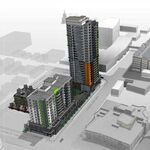AlvinofDiaspar
Moderator
I'm not so sure what exactly the author finds lacking here. Granted, that's often the way things are in cities; you can't quite put your finger on what 'it' is that you either love or hate. Still, as I understand it, his criticism seems to be that Toronto lacks personality because it doesn't have 'stuff' other than 'some parks, restaurants and neighbourhoods.' Which is basically as true for any city. None of them have much stuff if you, you know, discount the actual stuff.
Personally, I think that unknown something is that easy living had lead to taking past successes for granted and a state of graceful (and increasingly, disgraceful) decay. There is a fear of taking risk for the potential of betterment - can you imagine the Toronto of now building another say, CN Tower? Ontario Place? Bloor Viaduct? without going through a decade of debate and then say "F- that, we'll just muddle along without it"? The city seems unsure of what it wants, and even when it does, seems appalled at the prospect of having to pay for it.
I will say Toronto is, in a way, very post-modern in more or less rejecting the notion of authenticity. Tourists love that stuff and the entire tourism industry in lots of cities caters to foreign demands of exoticism and uniqueness. Most of these 'world-wise' travellers are never self reflective enough to ask how their own demands for authenticity give rise to entire authenticity industries in many tourist destinations to fulfill the tourists' desire for the unique. The vast majority of the world is perfectly content entertaining itself with parks and bars and restaurants.
It's one thing to base one's notion of authenicity to what a tourist demands, but I think for residents to come up with that PoMo model of identity is very much a post-hoc justification - i.e. my authenticity is that I reject that there is, and the notion of developing one. It's just not very convincing other than as a retort to criticism i.e. "Oh I am sooo beyond that".
The comments are just the worst. Self serious travellers who think their one week in Malaga somehow makes them an expert on romance. Like, look at this shit: "Would you pick up a stranger in this city, invite her / him to a cool club / romantic place and take her home the same day? Just because it happened spontaneously." Some pretentious jerk struck out when nobody wanted to go to his version of a 'romantic place' to hear his thoughts on grappa. Sheeesh.
I ignore the comments for that reason.
AoD
Last edited:




